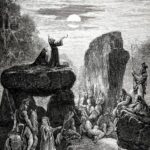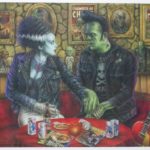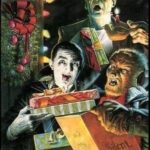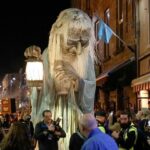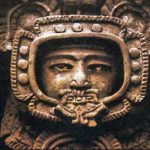The majority of Christians ascribe no doctrinal significance to Halloween, treating it as a purely secular entity devoted to celebrating imaginary spooks and handing out candy. The secular celebration of Halloween may loom larger in contemporary imagination than does All Saints Day.
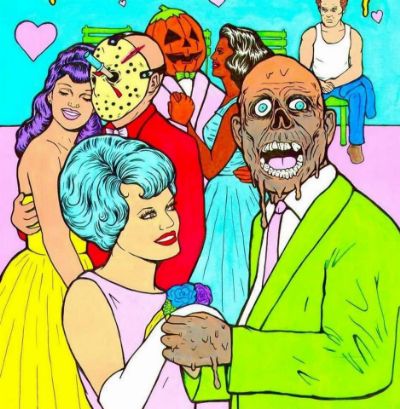
The mingling of Christian and Pagan traditions in the development of Halloween, and its assumed preoccupation with evil and the supernatural, have left some modern Christians uncertain of how they should react towards the holiday.
Certain fundamentalist and evangelical Protestants, along with some Eastern Orthodox Christians as well as conservative Jews and Muslims, strongly object to the holiday and refuse to allow their children to participate, citing its pagan origins (and, in some cases, its Roman Catholic connections) as well as what they regard as its Satanic imagery. In some areas, complaints from fundamentalist Christians that the schools were endorsing a pagan religion have led the schools to stop distributing UNICEF boxes at Halloween.
Another response among conservative evangelicals in recent years has been the use of Hell houses or themed pamphlets (such as those of Jack T. Chick) which attempt to make use of Halloween as an opportunity for evangelism.
Other Christians, particularly Roman Catholics, continue to connect the holiday with All Saints Day. Some modern Christian churches commonly offer a fall festival or harvest-themed alternative to Halloween celebrations. Still other Christians hold the view that the holiday is not Satanic in origin or practice and that it holds no threat to the spiritual lives of children: being taught about death and mortality actually being a valuable life lesson.
Fr. Gabriele Amorth, the senior exorcist of Vatican City, said in an interview with The Sunday Telegraph, “…if English and American children like to dress up as witches and devils on one night of the year that is not a problem. If it is just a game, there is no harm in that.”
Likewise, to many Protestant churches, October 31 is also the date of Reformation Day, a minor religious festival. Some families, churches, and religious schools combine the holidays.
Objections to celebrating Halloween are not limited to those of the Abrahamic religions. Some members of the Wiccan religion feel that the holiday is offensive to real witches for promoting a stereotypical caricature of a witch.
Additionally, many Wiccans and other neo-Pagan adherents object to Halloween as a vulgarized, commercialized mockery of the original Samhain observances.
Halloween is very commonly celebrated by Satanists, but typically there is far less occult significance attached to the date by Satanists than the public might imagine. Halloween is a popular date for both private and group ritual ceremonies, but also a popular date for Satanists to hold private parties for no other purpose than to enjoy the dark fun that is commonly celebrated on that date by the public at large.

